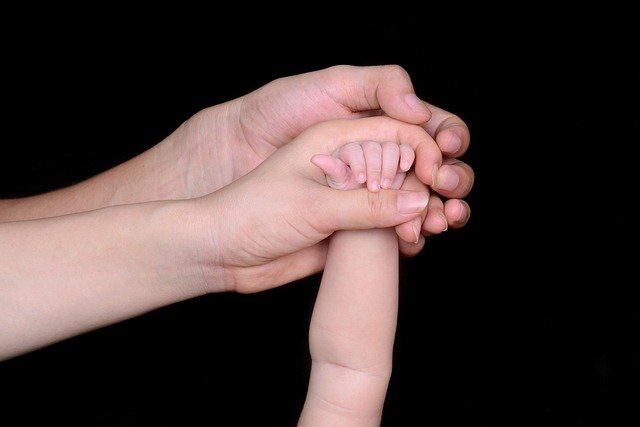Caring for a newborn is one of the most rewarding yet challenging experiences for parents. As new life enters your home, it’s natural to feel a mix of excitement and apprehension. In this article, we’ll explore all the essential aspects of newborn care to help you provide the best for your baby while ensuring your peace of mind
1. Understanding Newborn Basics
Before diving into specifics, it’s essential to understand that newborns communicate through cries. They have basic needs: food, sleep, comfort, and hygiene. While every baby is unique, paying close attention to their cues helps you respond appropriately.
Key Points to Remember:
- Newborns sleep around 16–17 hours daily in short intervals.
- Frequent feeding is necessary as their stomachs are tiny.
- Crying is their way of expressing needs, not always an emergency.
2. Feeding Your Baby
Feeding is a critical part of newborn care. Whether you choose breastfeeding or formula feeding, ensuring proper nutrition is vital.
Breastfeeding Tips:
- Nurse your baby every 2–3 hours or on demand.
- Ensure a proper latch to avoid discomfort and ensure milk transfer.
- Stay hydrated and maintain a healthy diet to support milk production.
Formula Feeding Tips:
- Follow the preparation instructions on the formula packaging.
- Always sterilize bottles and nipples before use.
- Do not leave prepared formula out for more than an hour.


3. Diapering and Hygiene
Your newborn will need frequent diaper changes, usually 8–12 times a day. Keeping their diaper area clean and dry prevents rashes and discomfort.
Steps for Diaper Changing:
- Gather supplies: a clean diaper, wipes, and diaper cream.
- Lay your baby on a safe surface.
- Wipe from front to back to prevent infections.
- Apply diaper cream to prevent rashes.
- Secure the clean diaper snugly but not too tight.
4. Safe Sleep Practices
Creating a safe sleep environment is crucial for your baby’s well-being and reduces the risk of sudden infant death syndrome (SIDS).
Tips for Safe Sleep:
- Always place your baby on their back to sleep.
- Use a firm mattress with a fitted sheet; avoid soft bedding or pillows.
- Share a room with your baby but not the same bed.
- Maintain a smoke-free environment.
5. Bonding and Emotional Care
Bonding fosters emotional security and trust in your baby. Simple interactions make a big difference in their development.
Ways to Bond:
- Hold your baby skin-to-skin.
- Talk, sing, and make eye contact with your baby.
- Respond promptly to their cries to build trust.
- Spend time cuddling and soothing them.
6. Bathing Your Newbor
Bathing your newborn can be a fun experience, but it’s essential to do it safely.
Guidelines for Newborn Baths:
- Sponge baths are ideal until the umbilical cord stump falls off (usually 1–2 weeks).
- Use lukewarm water and a gentle baby soap.
- Support your baby’s head and neck throughout the bath.
- Pat dry gently and apply a baby-safe moisturizer.


7. Clothing and Temperature Regulation
Newborns are sensitive to temperature changes, so dressing them appropriately is vital.
Dressing Tips:
- Use soft, breathable fabrics to avoid irritation.
- Dress your baby in one more layer than you’re wearing.
- Avoid overdressing; overheating can be dangerous.
- Use hats and socks to keep them warm in colder weather.
8. Health Monitoring and Doctor Visits
Regular check-ups are essential to ensure your baby’s health and growth.
Key Health Checks:
- Monitor weight gain and feeding patterns.
- Check for signs of jaundice (yellowing of the skin).
- Keep track of vaccinations as per your pediatrician’s advice.
Call your doctor if you notice:
- Persistent crying without a clear cause.
- Fever above 100.4°F (38°C).
- Difficulty feeding or breathing.
9. Managing Your Well-being as a Parent
Caring for a newborn is demanding, but taking care of yourself is equally important.
Self-Care Tips:
- Sleep when your baby sleeps to combat exhaustion.
- Share responsibilities with your partner or support system.
- Reach out for help if you feel overwhelmed.
- Join parenting groups for support and advice.
Frequently Asked Questions
1. How often should I feed my newborn?
Newborns typically need to feed every 2–3 hours. Look for hunger cues like lip-smacking, rooting, or crying.
2. When can I take my newborn outside?
After your baby is a few weeks old and your doctor gives the go-ahead, you can take them outside for fresh air, avoiding crowded places initially.
3. How can I soothe a crying baby?
Try swaddling, rocking, singing, or offering a pacifier. Sometimes, a change in environment or a gentle walk can also help.


All about of this article
Caring for a newborn may seem overwhelming at first, but with patience and practice, it becomes second nature. Remember, every baby is unique, and what works for one may not work for another. Trust your instincts, seek support when needed, and cherish every moment with your little one.
By following these tips and creating a nurturing environment, you’ll ensure your baby grows healthy and happy while enjoying the incredible journey of parenthood.







